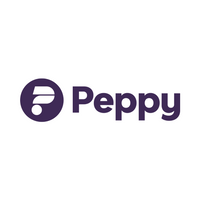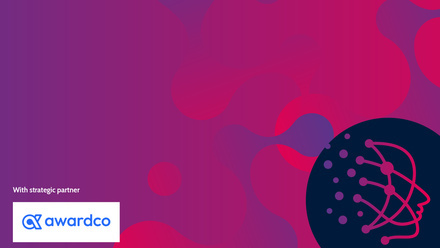How AI is reshaping clinical pathways in employee benefits
Clinical pathways are step-by-step care plans that guide employees through the most effective tests and treatments for specific health concerns.
They provide decision-making frameworks that ensure high-quality care while keeping benefits costs in check.
For reward and benefits leaders, clinical pathways can be a key piece of the puzzle when it comes to offering health benefits that truly make a difference.
However, traditional healthcare pathways can be slow and clunky, meaning employees and employers alike sometimes suffer more than necessary.
But, with the rise of AI and emerging digital tools, these pathways are becoming smarter.
AI is helping to personalise care, predict needs, and provide real-time data, making clinical pathways efficient and tailored to each individual.
This shift not only boosts employee wellbeing but also helps companies manage costs more effectively.
Max Landry, Peppy’s co-founder, is on the benefits-tech frontline. He chats daily with CPOs, CHROs, and heads of benefits from across the globe. With one foot in the world of HR and the other in cutting-edge AI, he has plenty to say about how AI is empowering reward and benefits teams to enhance employee health.
Here are Landry's three key ways AI is reshaping employee health - and why HR professionals should take notice.
1. Turning early diagnosis into a superpower
“Spotting problems early is the golden ticket for employees and employers,” Landry explains. “It’s faster, more effective, and cheaper - leading to better outcomes for everyone.”
In theory, clinical pathways are great, but when poorly optimised, they can trap employees in endless loops of GP appointments and waiting lists.
AI eliminates these bottlenecks by using predictive analytics and real-time data processing.
AI cuts through red tape, identifies issues faster, directs employees to the right care immediately, and eliminates the (albeit educated) guesswork that bogs down traditional approaches.
Take musculoskeletal (MSK) issues, for example - a common culprit behind employee absenteeism.
Employees waste time bouncing between GP visits, incorrect MSK assessments, and ineffective treatments, which prolong recovery and drive up costs, like private medical insurance (PMI) premiums.
Tools such as AXA PMI’s triage system are great, as they connect employees to the right care faster and save organisations an average of £300 per case.
Now, layer AI capabilities on top of that - suddenly symptoms and medical histories can be analysed instantly, ensuring employees get the most appropriate treatment from the start.
“AI takes things to the next level,” Landry says. “It doesn’t simply guide people to the right care - it learns from them and has the entirety of medical science to draw upon.
“It assesses symptoms, lifestyle factors, and medical history to pinpoint the very best starting point for care. It’s like having a healthcare Sherlock Holmes on speed dial - who wouldn’t want that?”
For employees, that means faster recoveries, less pain, and fewer long-term problems.
For employers, it means lower costs, and a healthier, more efficient workforce.
It’s also a huge competitive advantage.
“Optimised healthcare pathways are a must-have for forward-thinking employers,” Landry adds.
2. Personalisation: Because “one-size-fits-all” doesn’t fit at all
We’ve been talking about personalised benefits for years, and with AI, true personalisation can finally become a reality - and a powerful one at that.
“Employees don’t want generic, blanket benefits like EAPs,” Landry points out. “They want specific solutions that feel like they were designed just for them.”
AI makes this possible by analysing vast amounts of data to deliver tailored support and resources.
Platforms like Peppy connect employees to the right care - whether for mental health, chronic conditions, screening tests, or other challenges - ensuring they get the right support at the right time.
“Personalisation at scale changes everything,” Landry says. “When employees feel seen and understood, they engage more.
“When they engage more, they get more. When they get more, they feel supported. This builds loyalty and keeps people invested in your organisation.”
3. HR’s role in the digital healthcare evolution
Fast and effective access to healthcare is one of the most pressing challenges faced by employees today.
With NHS delays stretching for months and the rising cost of private care leaving many without options, the system feels broken for too many people.
This is, again, where AI and digital tools can help - and where reward and benefits specialists have the power to lead meaningful change.
“HR professionals have a responsibility to challenge and push their organisations to constantly review and improve employee wellbeing strategies,” Landry explains.
“They are the people connecting employees to the interventions that get and keep them healthy. AI is going to make their job so much easier, more impactful, and more fulfilling."
But the shift to AI-driven benefits isn’t without challenges - privacy concerns, implementation costs, and good ole scepticism can’t be ignored.
Reward and benefits leaders must approach this shift thoughtfully, choosing safe solutions that align with their organisation’s goals.
Landry offers this advice: “HR teams now have the power to design global benefits packages that optimise care pathways - but it starts with thoroughly understanding your people’s needs and then doing your research into the right tech and tools to meet them.”
The takeaway
The integration of AI into clinical pathways is happening now, and benefits professionals are at the forefront.
By embracing early diagnosis tools, benefits personalisation, and bravely navigating the challenges of digital healthcare, they can future-proof their benefits strategies and protect their people in the most important ways.
As Landry puts it, “AI should be used as a partner in rethinking how we deliver care. And benefits leaders are the ones who can make that partnership work for their organisations.”
From early diagnosis to hyper-personalisation, the opportunities are immense. The question is, will HR teams rise to the challenge?
As Landry says, “The future of healthcare is here. It’s time to lean in and lead the charge.”
Peppy’s Next Generation Benefits Platform is now live. Want to see it in action?
Live Exclusive Demo: Introduction to Peppy’s Employee Benefits Platform:
📅 13th Feb 2025
⏰ 12pm GMT
Register here.
Supplied by REBA Associate Member, Peppy
Peppy is a global app-based employee benefit giving employees access to expert clinical care in menopause, fertility, pregnancy, and more - trusted by 250+ companies and reaching over 3 million people.








